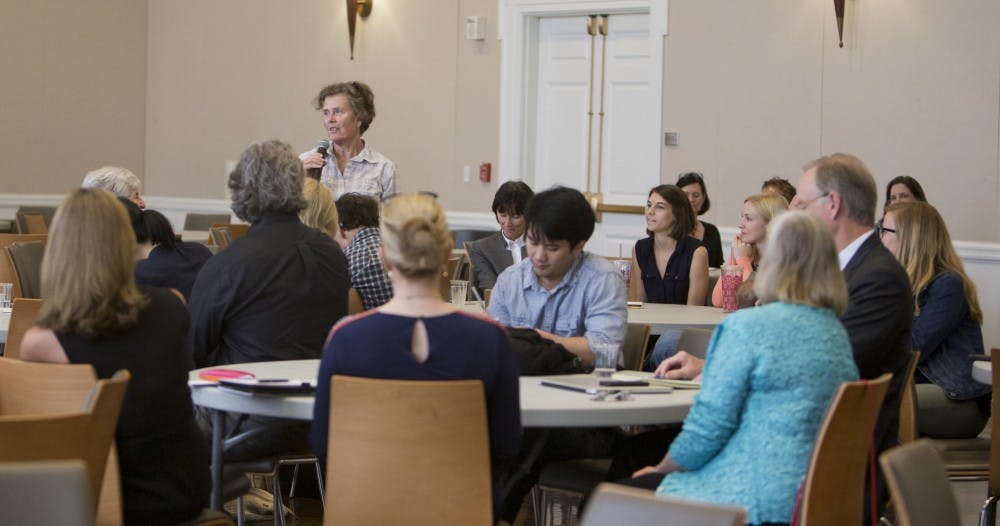The University Presidential Search Committee hosted a public seminar in the Newcomb Hall Ballroom Friday.
Darden Prof. Robert F. Bruner and Board of Visitors member James B. Murray, Jr., who are both on the search committee, ran the event. In small groups, attendees discussed their desired qualities for the next University president. Simultaneously, a livestream allowed online watchers to observe and send their thoughts via social media.
During the forum, Murray and Bruner, along with various other organizers, repeatedly encouraged attendees and online viewers to answer an online poll located on the University website. Murray said the highest ranked point on the poll was organization and the ability to handle complex systems.
Respondents to the poll were also asked to state what they feel best embodied the identity of the University.
A recurring concern announced by multiple attendees included the desire for a “global” candidate. Attendees also said they wanted to see the new president serve the interests of the city, the Commonwealth and the nation.
Also prominent was the matter of free speech on college campuses, which Murray called a “hot-button issue” before pledging the next president would uphold the principle of expressive liberty.
Murray said ensuring the representation of all aspects of the University ecosystem has stood as a top priority since the beginning of the search process.
“One of the first orders of business was the creation of a whole series of subcommittees, each of them targeted to critical areas of the University constituency,” Murray said. “Parents, alumni, donors, the community, students, the College at Wise, athletics — with every constituency, we challenged a subcommittee to go out and make sure that they had a voice, that they had an opportunity to speak about what they wanted to see in the process, what they wanted to see in the president.”
Bruner said this search process is the most inclusive he has seen in his years at the University.
“In my lifetime, this is the most open presidential search we’ve seen in the sense of outreach to constituents, listening, and engagement,” Bruner said. “We understand that the embrace, the success and indeed the sense of legitimacy hinges on the belief that this person was chosen through a process of integrity and thorough consideration.”
Murray said the responses of the online poll are “very important.”
“We look at candidates, and we have to judge them by something,” Murray said. “So we want to judge them by what the community thinks is valuable.”







